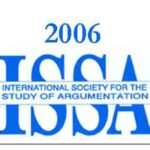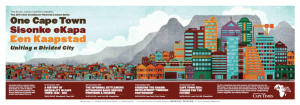Bjarke Ingels Will Make You Believe In The Power Of Architecture
Architect Bjarke Ingels at WIRED by Design, 2014. In partnership with Skywalker Sound, Marin County, CA.
To learn more visit:http://video.wired.com/watch/bjarke-ingels
ISSA Proceedings 2006 ~ Cultural Differences In The Persuasiveness Of Normatively Strong And Normatively Weak Expert Evidence
 1. Introduction
1. Introduction
People sometimes use expert evidence in support of their claims in persuasive texts (Hornikx, 2004) or speeches (Levasseur & Dean, 1996). The fact that, for instance, Professor Jackson underscores that playing party games helps young criminals to become more socialized, may serve as expert evidence in support of a claim about the effects of playing games for young criminals. In such cases, an argument by authority is formed, because “a statement is defended by pointing out the fact that an authoritative person or institution subscribes to it” (Schellens, 1985, p. 179).
Walton (1997) provided a detailed discussion of the argument by authority, and distinguished two different types of authority: the administrative authority and the cognitive authority. An administrative authority has “the right to exercise command over others or to make rulings binding on others through an invested office or recognized position of power” (p. 76). Examples of this kind of authority are a minister and a mayor. When a cognitive authority is concerned, there is “a relationship between two individuals where one is an expert in a field of knowledge in such a manner that his pronouncements in the field carry a special weight of presumption for the other individual” (p. 77). When expert evidence is used as support for claims in a persuasive setting, it is related to this cognitive authority.
In Section 2, I will give an overview of studies that investigated the persuasiveness of expert evidence as well as other types of evidence. One of these studies demonstrated that the persuasiveness of expert evidence was not the same in two different cultures. Section 3 will therefore discuss the relationship between expert evidence and the cultural background of people who judge expert evidence. Special attention will be paid to the question whether people from different cultures may vary in the persuasiveness of expert evidence that is normatively strong or normatively weak according to criteria from argumentation theory. The second part of this article will report on an experiment that investigated the persuasiveness of normatively strong or normatively weak expert evidence in France and the Netherlands. Read more
ISSA Proceedings 2006 ~ An Analysis Of Preschool Hebrew Speaking Children’s Arguments From The Perspective Of The Pragma-Dialectical Model
 1. Characteristics of Children’s Verbal Arguments
1. Characteristics of Children’s Verbal Arguments
Verbal arguments are part of young children’s normal activity and are usually “rule governed and socially organized events” (Benoit 1992, p. 733). Researchers have concluded that they have a positive effect on friendships and cognitive development (Corsaro 1994, Dawe 1934, Garvey 1993, Green 1933, and Shantz 1987). Corsaro (1994, p. 22) states “disputes provide children with a rich arena for development of language, interpersonal and social organization skills, and social knowledge.” In fact, O’Keefe and Benoit (1982) see argument as part of normal language learning. Piaget (1952, p. 65) states “[i]t may well be through quarrelling that children first come to feel the need for making themselves understood”.
Children’s arguments are generally short in duration. For example, Dawe (1934) found that on average quarrels last 14 seconds, while O’Keefe and Benoit (1982) found that young children’s disputes consisted of an average of five turns. Although these disputes are not long in duration, they are powerful events. Once a dispute has begun, “any prior goal or task is abandoned and the attention is directed to resolving the incompatibility” but “[o]nce the conflict is resolved, play can once again be resumed” (Eisenberg and Garvey 1981, p.151). These verbal disputes can be considered as “side-sequences” (Jefferson, 1972), important at the moment, but with no lasting effect on interaction.
2. The Study and Research Question
This paper will report on ongoing research investigating the verbal arguments of Hebrew speaking pre-school children. The data for this research was transcribed from videotapes of fourteen triads of pre-school children at play in a playroom that was set up for the purpose of the study. The children are also in daily attendance at the same pre-school. The subjects’ ages ranged from 4 years six months to six years five months, however the maximum age differences of the children in each individual group was usually around six months. Children above the age of four were chosen since by this age normally developing children have acquired the basics of their language system (Brown, 1973). The children were all native speakers of Hebrew. While the children conducted their talk in Hebrew it was transcribed and translated simultaneously into English by the author.
While this is an ongoing study with a number of research questions, only one of these will be related to in this paper. This question is presented below:
Is the process of Israeli preschool children’s arguments consistent with the pragma-dialectical model of van Eemeren and Grootendorst (2004)? Read more
ISSA Proceedings 2006 ~ Putin’s Terrorism Discourse As Part of Democracy And Governance Debate In Russia
 Abstract
Abstract
This paper [i] presents a study of President Putin’s use of the issue of terrorism in public debate in Russia. President Putin’s speech made in the wake of the Beslan tragedy, on September 4th, 2004, is examined. The logico-pragma-stylistic analysis employed in the paper describes communicative strategies of persuasion employed by the speaker and investigates how the Russian leader uses the issue of terrorism to further his political goals. The terrorism debate is analysed within a wider context of democracy and governance debate between the President and the liberal opposition.
Key words: argumentative discourse, rhetoric, pragmatics, pragma-dialectics, fallacies.
This paper is a study of the use of the issue of terrorism in public debate in Russia. It examines President Putin’s address to the nation in the wake of the Beslan terrorist attack, on 4 September 2004.
The study doesn’t pretend to be an exhaustive treatment of the topic; rather it aims to present a logico-pragma-stylistic analysis of the speech, to identify communicative strategies of persuasion employed by the speaker, and to investigate how the Russian leader used the problem of terrorism to further his political goals. The terrorism debate is analysed within a wider context of the democracy and governance debate between the President and a liberal opposition.
In trying to persuade his or her audience a skilled arguer assesses the audience and the issues at hand. When composing a message the speaker takes into account of several factors: the medium of communication (electronic mass media, print media), topic of discussion, audience (gender, level of education, expertise in the topic under discussion, rationality/emotionality, degree of involvement in the problem, level of life threat presented by the problem, etc), nature of the discussion (i.e. whether it is a direct dialogue with an opponent in a studio or an indirect dialogue through electronic or print media), applicable conventions (e.g. parliamentary procedures), and finally a broader, cultural and political context in which communication is taking place including such elements as openness/restrictiveness of the political regime, moral dilemmas and cultural taboos existing in the society, and traditions of conducting discussions inherent in the culture.
The process of assessment and adaptation of the issues to the audience establishes a communicative strategy of persuasion. The key decisions in a communicative strategy are to choose targets to appeal to and to prioritize them. While there are a wide variety of possible targets of appeal, it is possible to identify three major ones, people’s mind, emotions, and aesthetic feeling. An appeal to people’s reason or rational appeal is based on the strength of arguments. Emotional appeals arouse in the reader or listener various emotions ranging from a feeling of insecurity to fear, from a sense of injustice to pity, mercy, and compassion. Aesthetic appeals are based on people’s appreciation of linguistic and stylistic beauty of the message, its stylistic originality, rich language, sharp humour and wit. Read more
ISSA Proceedings 2006 ~ Changing Our Minds: On The Value Of Analogies For Extending Similitude
 Analogies are important in invention and argumentation fundamentally because they facilitate the development and extension of thought. (Chaim Perelman and Lucie Olbrechts-Tyteca, The New Rhetoric)[i]
Analogies are important in invention and argumentation fundamentally because they facilitate the development and extension of thought. (Chaim Perelman and Lucie Olbrechts-Tyteca, The New Rhetoric)[i]
In a recent article, A. Juthe notes that “it is not obvious that the most plausible interpretation [of an “argument by conclusive analogy”] is a deductive argument”; reconstructing those arguments as deductive, Juthe suggests, reveals “the perhaps too great influence of the deductive perspective in philosophy” (2005: 23). Juthe goes on to argue that “argument by analogy is a type of argument in its own right and not reducible to any other type” (16). In this paper, I extend Juthe’s analysis of analogical arguments in the interest of supporting an expansion of the category of argumentation in the public sphere beyond the traditional conception that’s valorized in Habermas’s conception of “communicative action.”
Analogical arguments may be assessed as valid, Juthe argues, by virtue of “a correlation or an intuitive connection based on our experience and background knowledge” (15). This conception suggests that there’s a major shift in orientation that’s needed to appropriately assess the value of analogical argumentation. More precisely, there are three shifts in orientation: reversing the relative importance usually allotted to properties in contrast to relations as well as to substances in contrast to events, when constructing arguments, and reversing the relative importance usually allotted to “warrant” in contrast to “background” when using the Toulmin model for argument analysis. Analysis of discussion of topics in public sphere argumentation suggests that we often rely upon analogical reasoning to propose alternatives to views propounded by discourse partners. Thus, examples in that domain inform my sense of the importance of analogical argumentation, background knowledge, temporality (events rather than substances) and relationality (correlations and counterparts, rather than identities) in mundane concept formation. It may be helpful to note that I am not concerned to reject the value of warranted arguments involving properties and substances. Rather, my interest is in valorizing analogical argument as worthy in its own right; as irreducible to other forms; and as a form of argument that bypasses what I suspect is a lurking remnant of that “perhaps too great influence of the deductive perspective in philosophy” that Juthe notices. That same influence, I suggest, may well be efficacious in what I argue elsewhere (Langsdorf 2000, 2002b) is a constrained conception of argumentation that limits, and even distorts, Habermas’s conception of “communicative action.”[ii]
This paper continues my previous work on the ontological aspect of articulation by focusing on analogical reasoning’s revelatory power in argumentation that seeks truth in Heidegger’s sense of “aletheia,” or “uncovering.” But that concept easily suggests a realist, in contrast to constitutive, basis for inquiry. Thus my initial task is to delineate the contrasts between realist and constitutive ontological starting points, in relation to dramatically different expectations as to what analogical arguments may accomplish. My further task concerns the implications that follow from acknowledging that these expectations are embedded in constitutive rather than realist ontologies; namely, we must assess their truth value by standards other than those more traditionally used in argumentation theory. In this paper I pursue only the initial task. The titles I use for the two orientations rely upon John Dewey’s identification of philosophy’s “proper task of liberating and clarifying meanings” as one for which “truth and falsity as such are irrelevant” (1925/1981, p. 307). Yet Dewey modifies that separation of “meanings” and “truth” by his recognition that “constituent truths,” in contrast to “ultimate truths,” rely on a “realm of meanings [that] is wider than that of true-and-false meanings.” My thesis, then, is that analogical reasoning’s value lies in uncovering alternate meanings by using the implicit “background knowledge” that’s intrinsic to any communicative situation. That knowledge includes “intuitive connections” that shape “wider” meanings – those meanings that propose “constituent truths” – and so “facilitate the development and extension of thought.” For that process of developing alternative possibilities and extending conventionally accepted meanings, I suspect, is crucial for that little-understood process we call changing our minds. Read more
Daneel Knoetze – Link Between Poor Housing, Traffic Deaths And Education Outcomes
 groundup.org.za. November 2014. The 7th annual Irene Grootboom Memorial Dialogues, which explore the continuation of Cape Town’s “spatial apartheid”, are underway. On Tuesday night, the focus was on the spate of shack evictions around the city this year, and the correlation between poor, densely populated areas and traffic deaths and education outcomes.
groundup.org.za. November 2014. The 7th annual Irene Grootboom Memorial Dialogues, which explore the continuation of Cape Town’s “spatial apartheid”, are underway. On Tuesday night, the focus was on the spate of shack evictions around the city this year, and the correlation between poor, densely populated areas and traffic deaths and education outcomes.
Being poor and living in densely populated informal settlements in Khayelitsha increases your risk of being killed by a car and of your children having poor education outcomes.
These were the conclusions, illustrated by statistics, of two speakers at this year’s Irene Grootboom Memorial Dialogues, hosted by the Social Justice Coalition and the African Centre for Cities.
The Constitutional Court ruled in favour of shackdweller and housing activist Irene Grootboom in 2000. The landmark judgment outlined the duties of the state in terms of the right of access to adequate housing in section 26 of the Constitution. For instance, the judgment held that the state must provide emergency shelter for those “with no access to land, no roof over their heads, and who are living in intolerable conditions or crisis situations.”
The lectures are held annually in memoriam of Grootboom who died in 2008, without having received a house.
Read more: http://groundup.org.za/link-between-poor-housing


